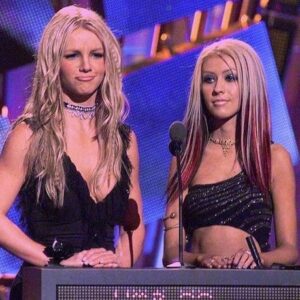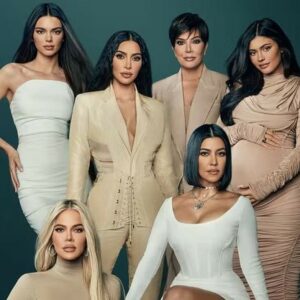If you were on the internet in 2020 you may recall seeing the “Imagine” cover posted by Gal Gadot via Instagram. The video was comprised of cameos of high-profile celebrities singing “Imagine” by John Lennon during the peak of quarantine, in an attempt to foster a sense of togetherness as the world seemed to be falling apart. While the rest of the world was struggling financially, physically, and mentally, these stars were posting from their million-dollar mansions. Needless to say, the post resulted in eye-rolls and wasn’t received very well. Viewed as out of touch, this was the beginning of the downfall of the traditional celebrity.
Celebrities have been influencing the masses for decades, for better or worse. Their impact on today’s culture, in all aspects, is nothing short of immeasurable. From music to art, to politics, to social reform the role celebrities play in our society is immense. With the rise of social media over the past 15 years we’ve witnessed a shift in modern-day media. However, with the success of TikTok in recent years, Gen Z is redefining what media are worth consuming. With that, one question arises, are mainstream celebrities still relevant?
 Although the answer to this question isn’t so black and white, there are many forms supporting the claim that traditional celebrities have fallen from grace. The disinterest in these celebrities is likely due to an accumulation of multiple different factors. In recent years, views for award shows have significantly decreased. The Oscars, the Emmys, and the Golden Globes have all been on a steady decline in viewership for the past couple of years. However, during their height of popularity, Hollywood was viewed differently from today. The way society consumed content in the early to late 2000s was vastly opposite. Relying on highly curated mediums to consume content, people had extremely limited knowledge of Hollywood and the stars which were comprised of it. Today, there is surely no shortage of information regarding Hollywood and the secrets that have been distasteful. Celebrities and celebrity culture are no longer glamorous and exclusive, but unrealistic.
Although the answer to this question isn’t so black and white, there are many forms supporting the claim that traditional celebrities have fallen from grace. The disinterest in these celebrities is likely due to an accumulation of multiple different factors. In recent years, views for award shows have significantly decreased. The Oscars, the Emmys, and the Golden Globes have all been on a steady decline in viewership for the past couple of years. However, during their height of popularity, Hollywood was viewed differently from today. The way society consumed content in the early to late 2000s was vastly opposite. Relying on highly curated mediums to consume content, people had extremely limited knowledge of Hollywood and the stars which were comprised of it. Today, there is surely no shortage of information regarding Hollywood and the secrets that have been distasteful. Celebrities and celebrity culture are no longer glamorous and exclusive, but unrealistic.
 The most recent and arguably well-known example of this is the Kardashians. Being famous for being famous, this family was once loved by many when their show first aired. Their initial stardom was in 2007 as the first season of “Keeping Up with the Kardashians” premiered on E! Entertainment. The show’s premise was light-hearted, raunchy, and often displayed a relatable family relationship. Fast forward to today their new show titled “The Kardashians” has been labeled a “flop” and completely boring. As the family has found themselves in countless controversies and problematic behaviors over the years, their downfall is currently being witnessed. Many fans of the famous family no longer have the desire to watch them flaunt their incomprehensible amount of money anymore.
The most recent and arguably well-known example of this is the Kardashians. Being famous for being famous, this family was once loved by many when their show first aired. Their initial stardom was in 2007 as the first season of “Keeping Up with the Kardashians” premiered on E! Entertainment. The show’s premise was light-hearted, raunchy, and often displayed a relatable family relationship. Fast forward to today their new show titled “The Kardashians” has been labeled a “flop” and completely boring. As the family has found themselves in countless controversies and problematic behaviors over the years, their downfall is currently being witnessed. Many fans of the famous family no longer have the desire to watch them flaunt their incomprehensible amount of money anymore.
 Teenagers and young adults seem bored of the perfect image Hollywood has fed for the past 20 years. For many, social media is a place of escapism from the stresses of real life. Therefore, users on all platforms have the intention of either laughing, gaining useful information, or simply feeling less alone. Seemingly, Gen Z is scrolling through Tiktok and following those they can relate to. Meaning these wealthy traditional stars are not receiving the same attention they once did. Viewed as out of touch and completely unrelatable their narrative is old, and people aren’t interested in hearing about their problems. While the traditional star continues to try desperately to stay relevant, the growth of social media influencers has refined this generation’s inspiration. Unlike traditional celebrities, social media influencers are able to connect directly with their audience. Popular styles of content could include “A day in my life” vlogs or “Everything I ate today” videos, allowing users to watch someone that represents them. These influencers are often vulnerable by showing their authentic self online and discussing topics that many are afraid to shed light on. There is a level of trust and friendship built between influencers and their followers. Due to this connection, many online communities have flourished. Gen Z is truly paving the way for new, talented, and personable creators to find success in making content online.
Teenagers and young adults seem bored of the perfect image Hollywood has fed for the past 20 years. For many, social media is a place of escapism from the stresses of real life. Therefore, users on all platforms have the intention of either laughing, gaining useful information, or simply feeling less alone. Seemingly, Gen Z is scrolling through Tiktok and following those they can relate to. Meaning these wealthy traditional stars are not receiving the same attention they once did. Viewed as out of touch and completely unrelatable their narrative is old, and people aren’t interested in hearing about their problems. While the traditional star continues to try desperately to stay relevant, the growth of social media influencers has refined this generation’s inspiration. Unlike traditional celebrities, social media influencers are able to connect directly with their audience. Popular styles of content could include “A day in my life” vlogs or “Everything I ate today” videos, allowing users to watch someone that represents them. These influencers are often vulnerable by showing their authentic self online and discussing topics that many are afraid to shed light on. There is a level of trust and friendship built between influencers and their followers. Due to this connection, many online communities have flourished. Gen Z is truly paving the way for new, talented, and personable creators to find success in making content online.



